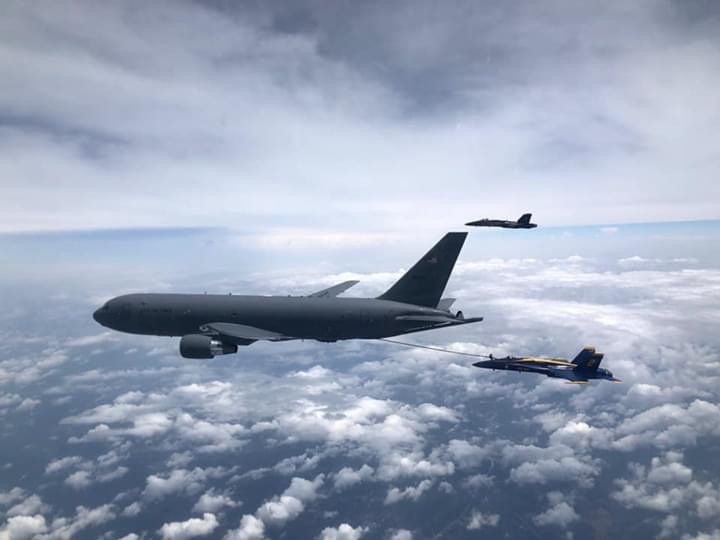Boeing must pay another $151 million out of pocket for the KC-46 program, the company announced in an earnings call July 29. This time, the company incurred the extra cost because the coronavirus pandemic is slamming the aerospace industry.
Parts and work for the new tanker are turning out to be more expensive than Boeing had budgeted for because commercial jet production has slowed during the pandemic, in turn shrinking the bulk manufacturing that was expected, the company announced in its second-quarter earnings report.
Boeing is obligated to cover all fees incurred over the fixed $4.9 billion price tag for the KC-46 program. In its previous earnings report, the company disclosed a new, $827 million charge related to the cost of improving the tanker’s Remote Vision System.
As part of the contractual agreement for the tanker, the Air Force covered the first $500 million in overruns to the program, with Boeing responsible for the rest. So far, Boeing is responsible for more than $4.5 billion in costs.
Boeing has so far delivered at least 34 KC-46s to the Air Force, which is conducting initial operational test and evaluation of the aircraft. The first test and evaluation phase will last another four years while RVS 2.0 is developed and installed to replace its faulty predecessor.
Overall, the company reported $2.4 billion in losses for the quarter, with the commercial aircraft unit suffering a 65 percent drop in revenue due to canceled orders and fewer aircraft deliveries. The company has already offered buyouts and laid off employees on the commercial side because air travel has slowed during the pandemic.
The company also confirmed the schedule for canceling the 747 series jets, with the last delivery expected in 2022. The Air Force has said it does not expect supply issues for its 747 variants—the current and future Air Force One and the E-4B nuclear command-and-control plane—because the existing supply chain will remain available.
